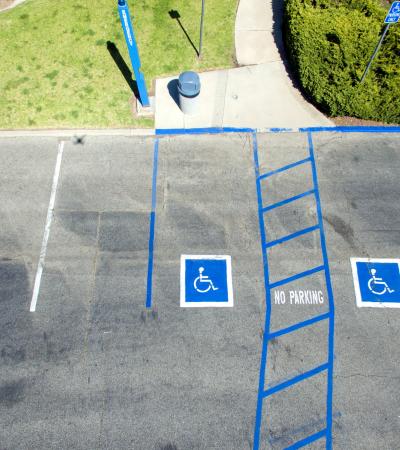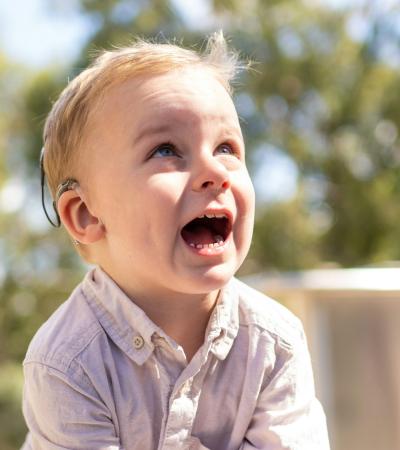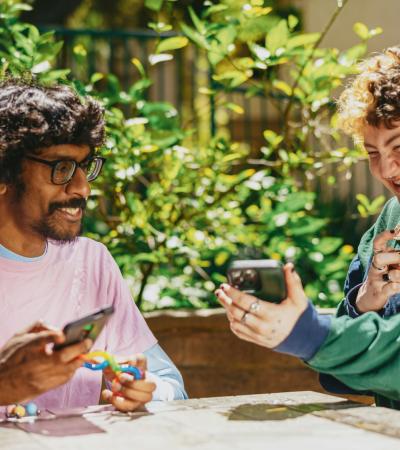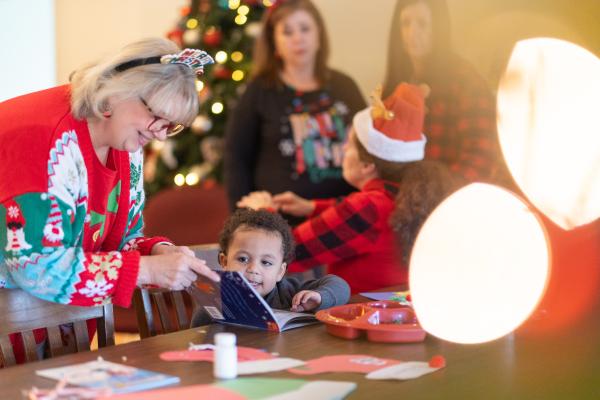
In Winchendon, Massachusetts, one institution is addressing these difficulties by offering a more inclusive kind of Santa experience. As part of their “See Beyond the Spectrum” initiative, staff at the Beals Memorial Library have created a holiday program specifically designed to accommodate the needs of patrons with sensory differences or who are neurodivergent. The program was first run in 2023, and was so popular the library decided to offer it again in 2024. The second time around, a total of 22 families participated. Some drove up to a half hour from other parts of the state to attend. Initially, the library had to create a wait list, but in the end, staff ensured that everyone got in by offering extended hours.
The event was held in two separate rooms in a large auditorium on the library’s second floor. One of these rooms was for visiting Santa. The second was an open space families could use however they liked. Some youth participated in craft activities offered by volunteers from the local preschool and ParentChild+ program. Others entertained themselves by playing games or simply running around. Noting the importance of unstructured activities and free time, library assistant director Alexis Chanthachack explains that for many neurodivergent youth, “movement is how they stay regulated.”
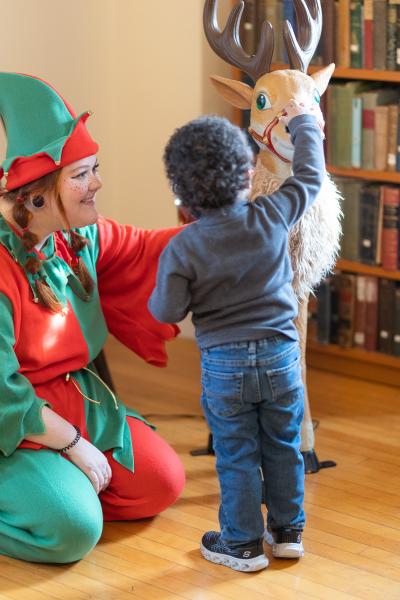
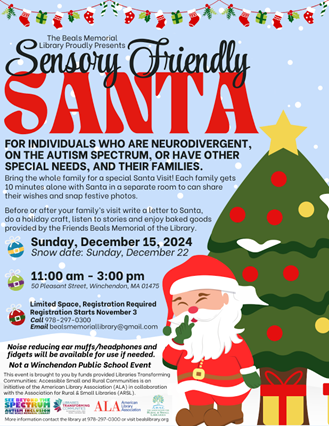
Responses to the program were incredibly positive. A library patron who took on the role of Santa said the event was “an eye-opener” because it revealed how much need there is for accessible, sensory-friendly programming. Many of the children who attended had never seen Santa in person, and appreciated being able to take things at their own pace. The experience was also a very emotional one for parents. Instead of constantly being on edge and worrying about others' reactions to their children, parents were able to relax and have fun. Aware that these parents “carry a lot,” the library prioritized the creation of a welcoming, destigmatizing environment for all. As one staff member puts it, the goal was to give visitors a chance “to do everyday family things.”
This sensory-friendly Santa program is just one of the ways that Beals Memorial Library is improving access for neurodivergent individuals and families. With funding support from the American Library Association’s (ALA) Libraries Transforming Communities: Accessible Small & Rural Communities (LTC Access) initiative, the library is creating new sensory-friendly programs and making their existing programs more accessible — while also expanding the library’s collections. The goal, as one staff member put it, is to make the library a place where neurodivergent patrons can “be comfortable to be themselves.” For more information on the library’s efforts, see their website.
About this Article
This article was written by Knology – evaluator of the LTC Access initiative. The article is part of a series of blog posts exploring how libraries that received LTC Access funds are working to better meet the needs of patrons with disabilities.
In other posts in this series, we provide a general overview of the accessibility projects these libraries have launched, look at attempts to put the disability rights movement’s ethic of “Nothing About Us Without Us” into practice, consider efforts focused on neurodivergent patrons and older adults, and look at how small and rural libraries are creating accessible community conversations. You can also read about how these libraries are overcoming challenges to planned accessibility upgrades, building partnerships to address community accessibility needs, and improving patrons’ experiences. And for stories of what individual libraries are doing, see the case studies we’ve published about the accessibility work going on at the Lee Public Library and the Jessie E. McCully Memorial Library.
For more on how libraries can become more accessible to patrons with disabilities, see the collection of resources we assembled.
Does your library have a story to tell about its own accessibility work? Please reach out to us at programminglibrarian@ala.org to share your experiences!

